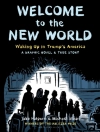This edition includes a modern introduction and a list of suggested further reading.
One of America’s first novels to deal frankly with a young woman’s sexual awakening,
Summer shocked readers with its forthright exploration of desire and sexuality. Set in the Berkshire Mountains of Western Massachusetts, it tells the story of Charity Royall, a young New England woman of humble origins who meets and falls in love with the worldly Lucius Harney, an architect from the city. In evocative and descriptive prose, Edith Wharton conveys the ecstasy of Charity’s first experience in sexual and romantic love, and pulls her heroine through the throes of loving a man who ultimately cannot choose her. Wharton’s tale elicits the passion and despair of all great but ill-fated love affairs and enthralls the contemporary reader with its pathos just as it did nearly one hundred years ago.
A propos de l’auteur
Edith Newbold Jones was born January 24, 1862, into such wealth and privilege that her family inspired the phrase ‘keeping up with the Joneses.’ The youngest of three children, Edith spent her early years touring Europe with her parents and, upon the family’s return to the United States, enjoyed a privileged childhood in New York and Newport, Rhode Island. Edith’s creativity and talent soon became obvious: By the age of eighteen she had written a novella, (as well as witty reviews of it) and published poetry in the Atlantic Monthly.
After a failed engagement, Edith married a wealthy sportsman, Edward Wharton. Despite similar backgrounds and a shared taste for travel, the marriage was not a success. Many of Wharton’s novels chronicle unhappy marriages, in which the demands of love and vocation often conflict with the expectations of society. Wharton’s first major novel, The House of Mirth, published in 1905, enjoyed considerable Literary Success. Ethan Frome appeared six years later, solidifying Wharton’s reputation as an important novelist. Often in the company of her close friend, Henry James, Wharton mingled with some of the most famous writers and artists of the day, including F. Scott Fitzgerald, André Gide, Sinclair Lewis, Jean Cocteau, and Jack London.
In 1913 Edith divorced Edward. She lived mostly in France for the remainder of her life. When World War I broke out, she organized hostels for refugees, worked as a fund-raiser, and wrote for American publications from battlefield frontlines. She was awarded the French Legion of Honor for her courage and distinguished work.












